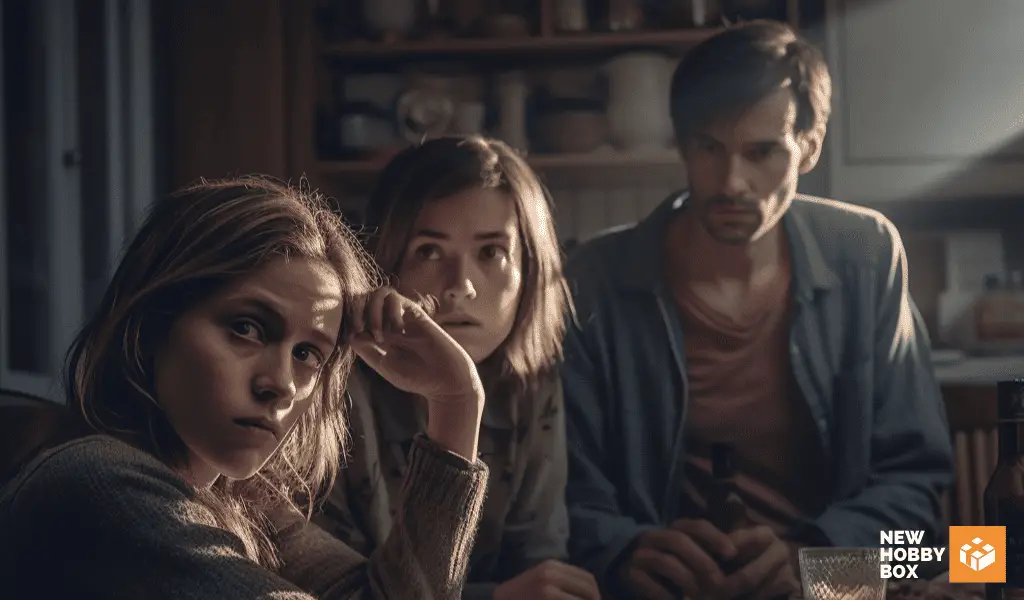
Free time – it’s a double-edged sword. One moment you’re basking in the luxury of leisure, and the next you’re wondering, “What’s next on my to-do list?” We’ve all had idle hands and an itch to find something captivating to fill our hours. So, what should you do when you have no hobby?
When you have no hobby, exploring varied interests is a wise first step. Dabble in different activities such as painting, gardening, or coding to see what captivates you. You might stumble upon a passion you never knew existed, thereby enriching your personal growth and leisure time.
Where should you start though? Well, the first step begins with appreciating the value of hobbies – they do more than just fill our free time; they provide opportunities for learning, skill-building, and nurturing our well-being. All the important things that keep us sane. If you’re tired of wondering where your next hobby fix is going to come from, join us in this article as we guide you through the process of finding the perfect new hobby. Let’s transform leisure into fulfillment.
5 STEPS TO FIND YOUR NEXT HOBBY
Guess what? Not having a hobby isn’t a flaw; it’s the beginning of something new and exciting. It’s an excuse to try something different and take on things you never would have thought to test – you’ll uncover aspects about yourself along the way. Eventually, the stars will align and interests will pique at the same time your preferences and lifestyle align. It’s a beautiful crescendo of hobby astrology.
The value and benefits of having a hobby
Having a hobby isn’t just about filling up spare time. It can serve as a mental getaway, a means to build new skills, and even a social catalyst. A hobby can provide much-needed relaxation, stimulating creativity, and fostering a sense of achievement. You’ll find it’s a rejuvenating diversion from your daily routine, adding a new dimension to your life and enhancing overall well-being.
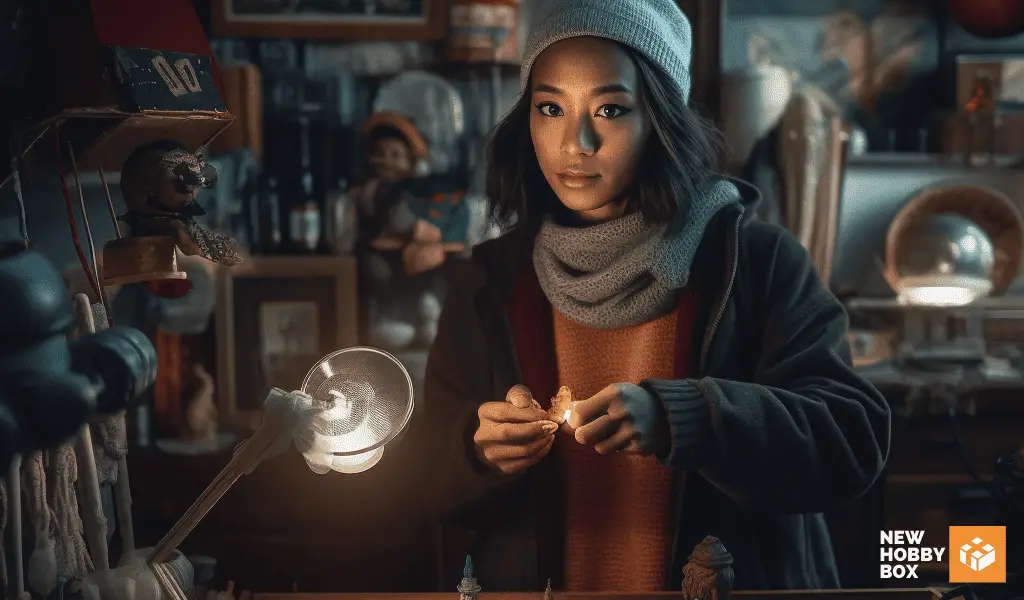
1. Why Having A Hobby Is Important?
Having a hobby isn’t just about filling up spare time. It can serve as a mental getaway, a means to build new skills, and even a social catalyst. A hobby can provide much-needed relaxation, stimulating creativity, and fostering a sense of achievement. You’ll find it’s a rejuvenating diversion from your daily routine, adding a new dimension to your life and enhancing overall well-being.
THE MANY BENEFITS OF HAVING HOBBIES
Benefits of Hobbies: Mental Health, Social Opportunities, Skill Development, Etc.
Embracing a hobby isn’t just about fun and games. It’s also a wise investment in yourself. To start, it works wonders for mental health.
- Improved Mental Health: When you’re immersed in a hobby you love, it’s like giving your brain a little vacation. It lets you break away from the daily stressors and focus on something that brings you joy—something just for you.
- Greater Social Opportunities: Beyond that, hobbies can also act as social bridges, connecting you with like-minded folks. Whether it’s joining a book club or an outdoor hiking group, hobbies often come with a built-in community, offering the chance to build new friendships and broaden your social circle.
- Development of Skills: And let’s not forget skill development. When you pick up a new hobby, you’re also picking up new skills. For instance, learning to knit isn’t just about making cool scarves—it’s also about developing patience, enhancing focus, and honing fine motor skills.
IS IT OKAY TO NOT HAVE HOBBIES?
Yes, it is completely okay not to have hobbies. Life satisfaction isn’t solely determined by hobbies; it’s about personal fulfillment, which can come from work, relationships, or even quiet introspection. Hobbies are optional extras, beneficial but not obligatory for a contented existence.
So, if you’re feeling content without hobbies, that’s perfectly fine! You’ll still reap the many benefits of a life well-lived.
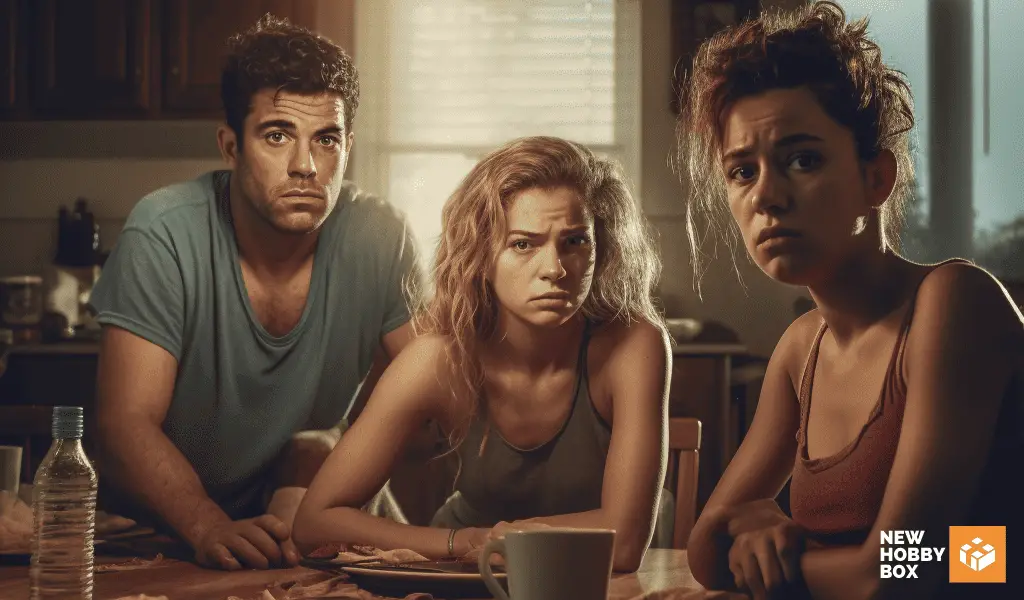
WHAT HAPPENS IF WE DON’T HAVE HOBBIES?
If we don’t have hobbies, we might miss opportunities for relaxation and self-discovery. While not crucial, hobbies provide a creative outlet, enrich our skill sets, and offer potential social connections. A hobby-less lifestyle, however, does not diminish one’s worth or happiness.
Ultimately, it’s up to each individual to decide what makes them feel fulfilled. Whether you decide to pursue a hobby or not, the most important thing is learning to embrace whichever path you choose and having gratitude for all the experiences (and opportunities) along the way. For those determined to find the perfect hobby, it’s time to be brutally honest about your interests.
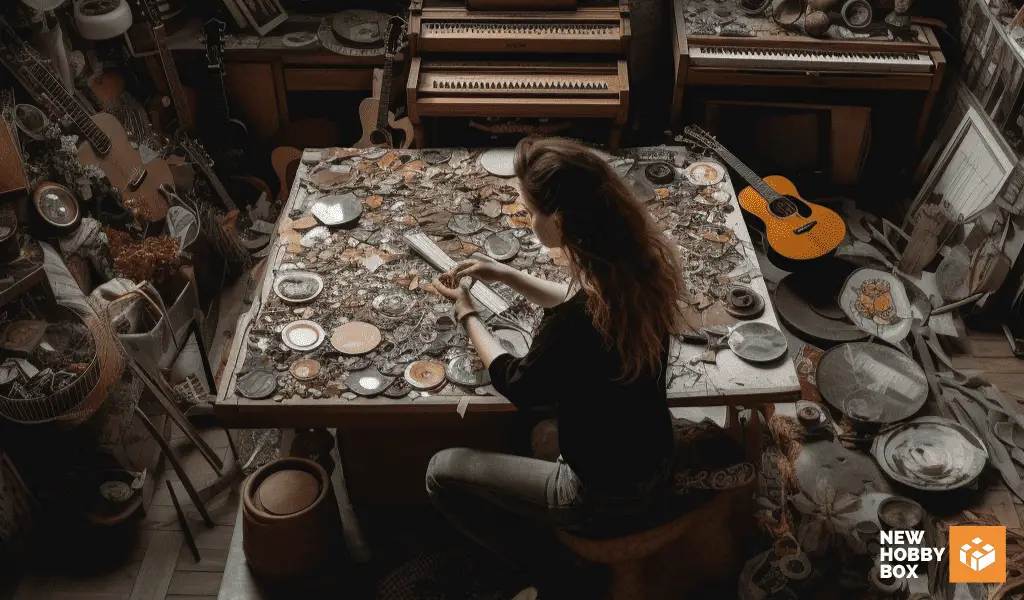
2. IDENTIFYING YOUR INTERESTS
Picking a hobby isn’t like pinning a tail on the donkey – there’s a bit more to it than blind luck. It’s important to identify what tickles your fancy before you dive in. A hobby that aligns with your interests shouldn’t feel like another chore on your list. Instead, it’s something you can’t wait to get to throughout the day, an escape from whatever your daily grind looks like. To get there, it begins with a bit of introspection.
How to Identify Interests in 7 Different Ways
Alright, but how do you spot these areas of interest? That’s the million-dollar question. This is a stage where many get tripped up, which means there are several different paths to identify your interests – we count 7 actually, including:
- Move, Reflect, Grow – Try activities that make you active, introspective, or provoke thinking.
- Look Back in Time – What did you love as a kid?
- Embrace Your Community – Is there something unique to where you live?
- Upcycled Inspiration – Repurpose forgotten treasures.
- Against the Grain – Map out things you dislike and try them (within reason of course).
- Past Purchases – Did you love anything you bought this year? How can you expand on it?
- Look Around You – Does your local community offer any free workshops?
Well, it’s simpler than it seems – just take a minute to reflect. Think about what you enjoy in your free time. Do you find peace in the quiet corners of libraries? Or maybe you’re drawn to the outdoors? Do you love cooking up a storm in the kitchen or solving brain-tickling puzzles? Your current behaviors may already indicate what you’ll love as a hobby.
3. SUGGESTIONS FOR HOBBY EXPLORATION
You should have 3 hobbies at any given time – and if you don’t know why, pause what you’re doing and learn why. If that’s too much work, know this: the article discusses the idea that everyone should have one hobby to make them move, one to help them reflect, and one to help them grow. These categories help people find fulfillment and improve their lives, a concept derived from the powerful book ‘5 AM Club’, which involves spending an hour each morning on activities that fit into these three categories.
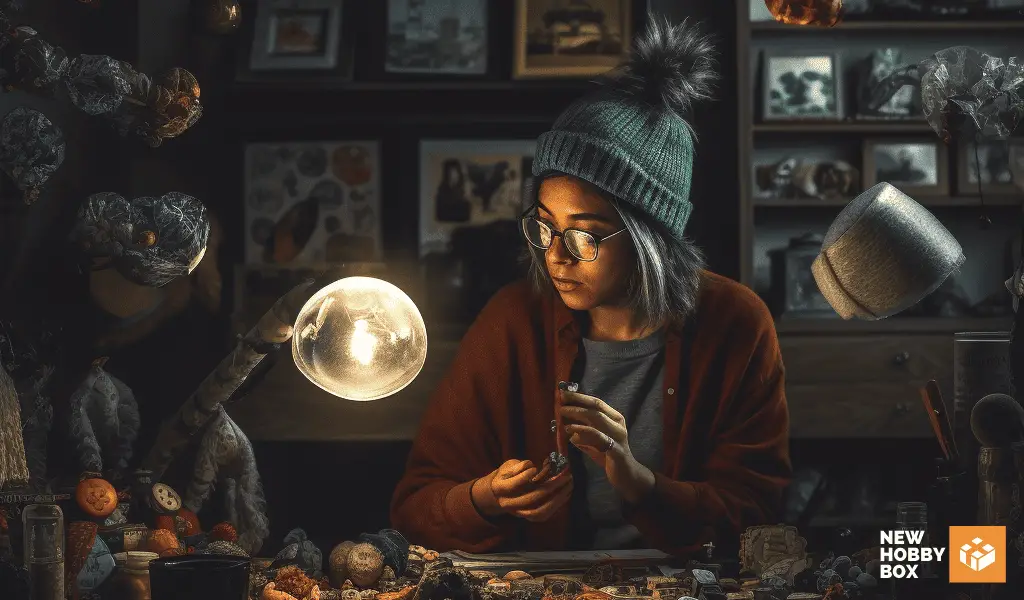
3 Hobbies to Help You Feel Fulfilled
Here are how hobbies could possibly be categorized into these three ideas:
MOVE HOBBIES: FOR THE ATHLETIC AND OUTDOORSY
These hobbies center around improving physical fitness and promoting overall well-being. Examples include jogging, dancing, hiking, weightlifting, or aerobics.
REFLECT HOBBIES: FOR THE INTELLECTUAL
These hobbies encourage mindfulness, self-awareness, and inner peace. Examples include meditation, journaling, yoga, gardening, or nature walks.
GROW HOBBIES: FOR THE DREAMERS AND INNOVATORS
These hobbies stimulate the mind and ignite the creative spark within you. Examples include writing calligraphy, painting, playing an instrument, photography, or inventive cooking.
Experiment and Keep An Open Mind
Feeling overwhelmed by choices? Try taking a sampler platter approach. Dabble in different hobbies – set up a mini photo shoot one week, try a new recipe the next, and maybe even join a local sports club. By trying out various activities, you’ll be able to identify which ones resonate with you the most. Remember, there’s no harm in experimenting – and the secret ingredient is an open mind.
Trying something new will challenge you, but that’s by design and all part of the process. After all, hobbies are not just about filling up your spare time – they’re about exploring new facets of your personality and stepping outside your comfort zone. This will help you grow.
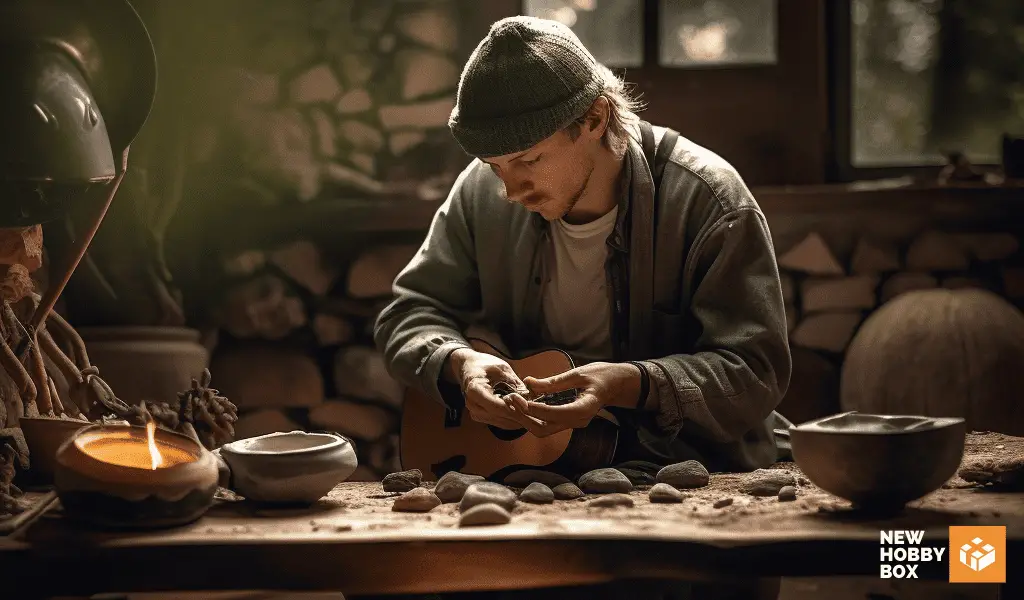
4. HOW TO GET STARTED WITH YOUR NEW HOBBY
Once you have a hobby in mind, there can still be obstacles at play. So to get over this final hurdle before the ‘doing’ part of the process, we’ve created a step-by-step guide to starting any hobby. It goes like this:
- Step 1 – Research: Regardless of which hobby you pick, the research part is key. Get familiar with the basic concepts and techniques so that when it comes to actually doing the hobby, you don’t feel completely lost.
- Step 2 – Gather Supplies: Don’t let the lack of supplies stop you in your tracks – find out what materials are essential and start gathering them. It could be anything from brushes, canvas, paper, or clay – whatever your chosen hobby calls for.
- Step 3 – Connect: Joining a community of like-minded hobbyists is an excellent way to stay motivated and learn something new every day. That could mean joining a local club or online forum where you can connect with people who share your passion.
Why Is It Hard to Start A New Hobby?
Starting a new hobby can be difficult due to unfamiliarity and time constraints. Learning new skills demands patience and dedication, which can be challenging amidst busy schedules. However, overcoming initial hurdles can lead to profound personal growth and satisfaction.
Overcoming the Initial Fear or Hesitation
It’s completely natural to experience a degree of fear or hesitation when starting a new hobby. Remember, every expert was once a beginner. Consider each hurdle as an opportunity to learn and grow. The initial steps might be shaky, but with patience and persistence, you will soon find your rhythm. A little courage can lead you down paths you never thought you’d venture.
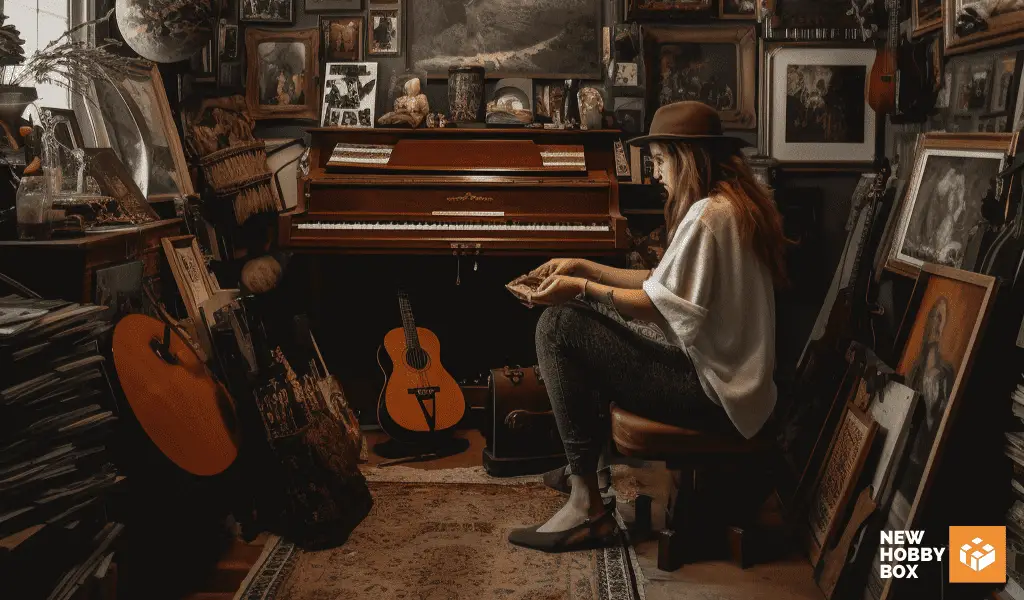
5. NURTURING YOUR NEW HOBBY
Consistency is key. It’s not about the quantity of time spent, but the quality and regularity. Develop a routine that incorporates your hobby – daily, weekly, or as often as you can. Setting realistic goals can also encourage progression.
If you’re learning guitar, aim to master one song at a time. As you evolve, challenge yourself more, but remember, every achievement – big or small – counts in this enriching journey.
The Importance of Patience in Skill Development
Patience is often understated in the process of skill development. It’s easy to feel overwhelmed or impatient when progress seems slow, this is usually the time most people give up. Acquiring skills takes time and varies from person to person, but unless you’re a savant, you won’t become a maestro overnight, yet, with every strum, you’re getting closer. The beauty of nurturing a hobby lies not just in the final product, but also in the journey of learning and growth.
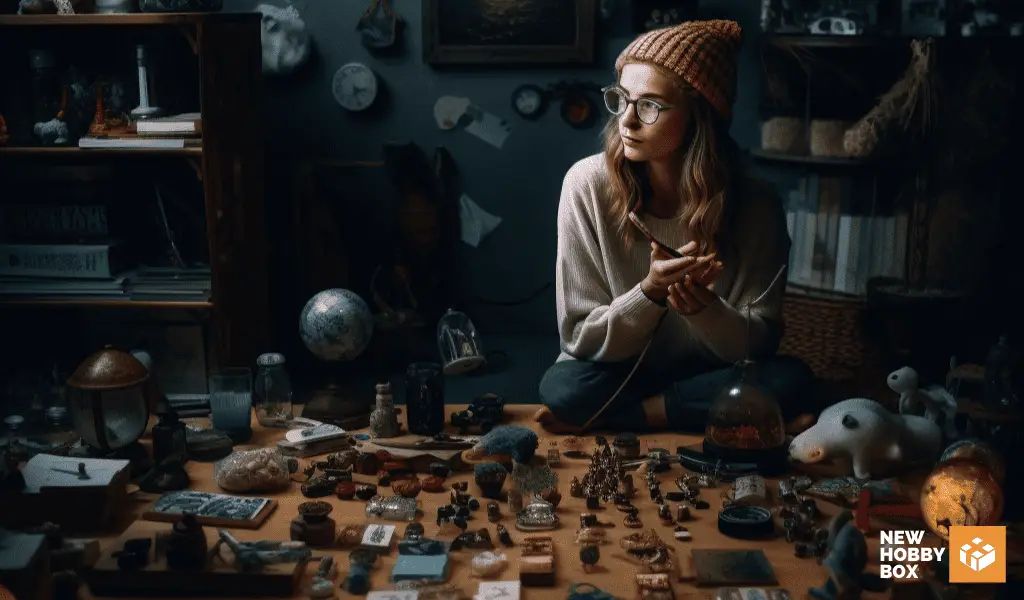
IS HAVING A HOBBY NECESSARY FOR PEOPLE?
Having a hobby isn’t necessary, but it’s beneficial for personal development and well-being. Engaging in activities outside of work or studies can enhance creativity, reduce stress, and improve social connections, contributing to a balanced life.
Every hobbyist, regardless of their expertise, experiences setbacks. The trick is to view these challenges not as roadblocks, but as stepping stones. Did your first attempt at a landscape painting not turn out as expected? That’s okay. Each failed attempt is a lesson learned. Take a step back, analyze what went wrong, and then try again. The path to mastery isn’t always smooth, but it’s the bumps along the way that make the journey worthwhile.
There is an intriguing world of hobbies waiting to be explored, brimming with potential for joy, learning, and self-expression. Whether it’s painting, coding, or bird-watching, each offers unique experiences and skills. So why wait?
Let curiosity lead the way. It’s okay to start small, to fumble, and even to switch interests. The key is to dive in, engage, and savor the journey.
